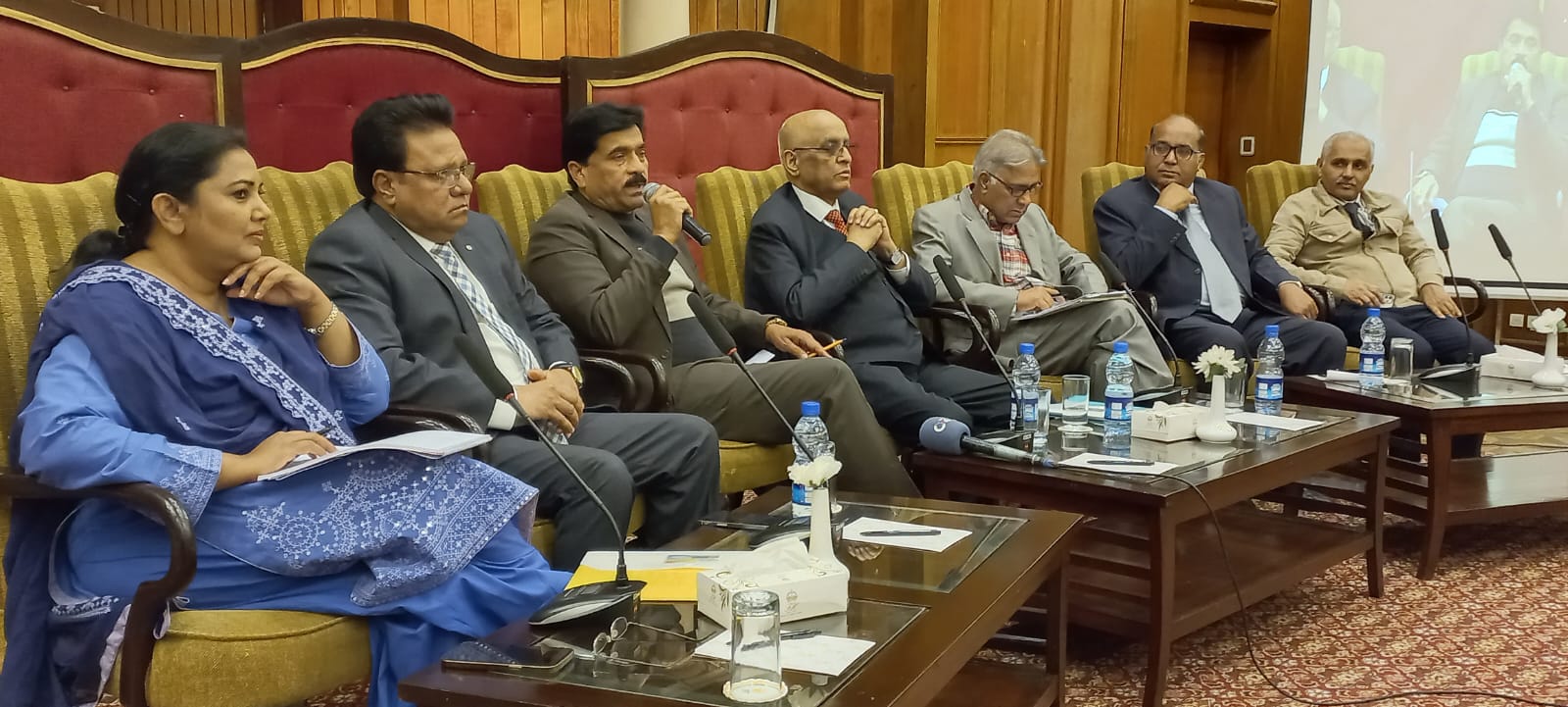Govt urged To Pass Protective Law Promptly, Activate Institutions
News Desk
Lahore: The minority legislators made a pledge to fully support the bills setting up the minority rights commission and criminalising forced faith conversions in the legislative assembly.
The Peoples Commission for Minorities’ Rights (PCMR) and the Centre for Social Justice (CSJ) held a Peoples Assembly on ‘Minorities Rights: Safeguards and Policy Actions,’ drawing representation from across the country, that thoroughly discussed the draught bill for establishing a National Commission for Minorities (NCM) and the Prohibition of Forced Conversion Bill, 2021.
CSJ Executive Director Peter Jacob proposed that the body should be called the national commission for minorities rights so that it does not seem to be a religious institution, and National Commission For Human Rights Pakistan (NCHR), National Commission on the Status of Women (NCSW), and National Commission on The Rights of Child (NCRC) should have representation in the NCM along with the Foreign Ministry of Foreign Affairs, and the cabinet must be involved in appointing and removing members.
Peter shared the data regarding questionable female conversions from minority communities, which revealed that at least 124 incidents in the year 2022 were reported in Pakistan, which included 81 Hindus, 42 Christians, and one Sikh. 66 per cent of cases were reported in Sindh, followed by 40 per cent in Punjab, and one case each in Khyber-Pakhtunkhwa and Balochistan.
Former minister Ijaz Alam Augustine lamented that the progressive laws dealing with child marriage and forced faith conversions are blocked by religious groups and bureaucracy. “An improvement in the human rights situation is only possible if human rights violations are adequately addressed,” he added.
Dr Riaz Ahmed Sheikh said that a bill against forced conversions must be considered by the legislative assembly, and marriage and conversion of girls below the age of 18 should be banned to protect their childhood from abuse and violate their child rights.
Justice (retd) Kailash Nath Kohli said that religious groups are increasing their influence in education fields and legislative assemblies. Child marriage has to be prevented to fix the legal marriageable age at 18 years for both girls and boys. Nath Kohli stated that a bill to criminalise forced conversions should be a priority of the federal and provincial governments as religious groups are involved in this practice and they get away with their crimes, which is injustice. Dr A H Nayyar said that strengthening human rights institutions to protect minorities’ rights is imperative to strengthen laws and policies that affect religious minorities.
Recommendations
The PCMR observed that it welcomed the long-awaited National Commission for Minorities Bill, 2023, tabled in the national assembly.
The bill to establish a minority rights body should be called the National Commission for Minorities Rights (NCMR) to make the perspective clear.
It ought to be a human rights institution rather than a religious minority’s parallel of any other state institution.
The representation of ‘minorities’ in the composition part (section 3(3)) of the National Commission for Minorities Bill is in conflict with the definition of minorities mentioned in Article 260 3(b) of the Constitution of Pakistan. Hence, they propose that while including the diversity of religious groups, its composition should enable respect and realisation of human rights.
Therefore, it must reduce government representation and influence as well as reduce the religious divide or cancel the possibility to promote favourites among minorities or neglect others. The Ahmadi representation has been entirely missed; it should not be presumed that Ahmadis do not need representation or will not be willing to join this body.
The term ‘convener’ used in Section 4(4) is not defined in the definition part, and it lacks the mention of international laws in the definition of ‘human rights’ mentioned in Section 2(e). Therefore, it is in conflict with the law and the NCHR.
They propose that the term ‘Muslims’ (section 3(h)) be replaced with human rights experts from civil society. However, the appointment to the minority rights body should be through Parliament rather than a selection committee, and it should present an annual report to the Parliament rather than the President of Pakistan (section 24 (2)).

Comments are closed.